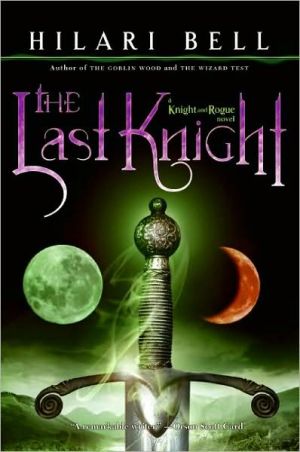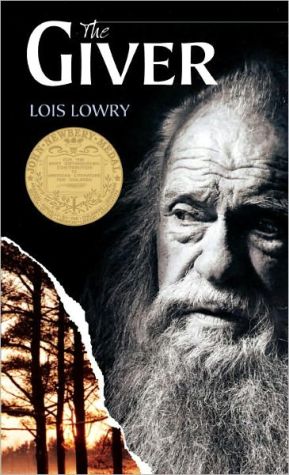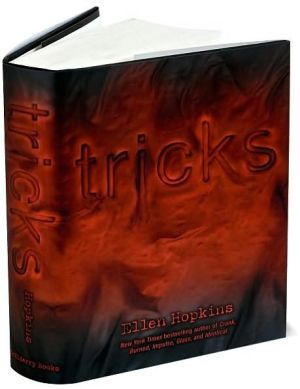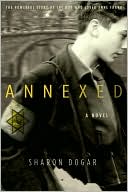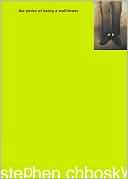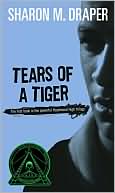The Last Knight (Knight and Rogue Series #1)
Need a Hero?\ \ To say it was a dark and stormy night would be a gross understatement. It was colder than a witch's kiss, wetter than a spring swamp, and blacker than a tax collector's heart. A sane man would have been curled up in front of a fire, with a cup of mulled wine and a good boo—, ah, a willing wench. But not me. I was out in it. I'm squire to a hero.
Search in google:
Need a Hero? To say it was a dark and stormy night would be a gross understatement. It was colder than a witch's kiss, wetter than a spring swamp, and blacker than a tax collector's heart. A sane man would have been curled up in front of a fire, with a cup of mulled wine and a good boo—, ah, a willing wench. But not me. I was out in it. I'm squire to a hero.Publishers WeeklyThis first installment of the Knight and Rogue novels, a planned heroic fantasy series, chronicles the misadventures of a sarcastic 17-year-old ex-con and his idealistic employer, who is just one year older. Sir Michael Sevenson is a knight-errant, although, as the narrator puts it, that kind of "romantic idiocy" hasn't existed in more than two centuries. After Sir Michael saves the narrator, Fisk, from a lengthy jail sentence by hiring him on as his squire, the unlikely duo rescue an imprisoned damsel in distress from a tower-only to discover that they've freed a woman suspected of murdering her husband. To make amends, Sir Michael and his wily squire set out to capture the villainess and bring her back to trial. Bell (The Goblin Wood) fills the ensuing realm-spanning journey with magic-filled adventure and moments of downright hilarity, especially scenes involving Tipple, the alcoholic horse. While some serious shortcomings mar the narrative-characters aside from the two protagonists are essentially flat, and the world-building aspect is practically nonexistent-the fast-paced action and well-developed friendship between Sir Michael and Fisk make up for any inadequacies. Ages 12-up. (Sept.)Copyright 2007 Reed Business Information
The Last Knight\ Chapter One\ Fisk\ To say it was a dark and stormy night would be a gross understatement. It was colder than a witch's kiss, wetter than a spring swamp, and blacker than a tax collector's heart. A sane man would have been curled up in front of a fire with a cup of mulled wine and a good boo—, ah, a willing wench. But not me. I was out in it. I'm squire to a hero.\ At least the downpour that had drenched us all afternoon was now beginning to slacken. The Green Moon hadn't risen, but the Creature Moon was high enough to glow dimly through the churning clouds, shedding just enough light for me to watch the damsel being lowered from the tower. Not that I could see her well, with the rain splattering into my eyes whenever I looked up; she was only a dim shape of swirling skirts and hair, dangling from a knotted rope.\ Sir Michael, my employer, had tied those knots to make handholds for the climb down. He was inside the tower now, slowly releasing the rope. The woman bounced when the knots slid over the windowsill, but the lady had the sense to brace her feet against the tower. She was doing all right.\ But if she slipped and set up a screech, or if anything alerted the guards, who were currently dicing on the tower's ground floor, I was going to take Tipple and ride off as fast as I could. Tipple was the faster and sounder of the two horses I was "guarding," and even she wouldn't be able to move quickly in this much mud. I had seen enough of my employer, in the one week we'd known each other, to be certain he'd put up a good enough fight to delay them while I escaped.\ I had suggested hiring a nice dry carriage . . . buteven if he'd agreed, Sir Michael would have expected me to drive it.\ When Sir Michael first told me he'd take me as his squire (this was after he'd told me he was a knight errant, and I'd asked if his keepers knew he was out), he said that all proper knights errant had trusty squires behind them.\ Shaken as I was at the time, I still had the sense to refrain from saying that "behind him" was where I intended to stay. Looking after lunatics isn't a job I fancy—but then, I didn't have much choice in the matter.\ This is the modern age. Knights errant have been extinct for over two hundred years, and even when they existed, errantry wasn't what you'd call a practical profession. I'd outgrown that kind of romantic idiocy before I was ten, but looking at his calm face, I realized that Sir Michael—a full year older than my own seventeen—was perfectly serious.\ He'd done a better job getting into the tower than I had expected—crazy people must have an advantage when it comes to doing crazy things. The rain-slick ruins of the keep provided a treacherous but manageable staircase that stopped just short of the third-floor window where Sir Michael had entered the tower. The only tricky part was climbing the last ten feet of sheer stone to the third floor. It took him four tries. A woman climbing down never could have done it.\ The tower's upper windows were dark, which meant there were probably no guards on the upper floors. The lady's steward had warned us, several times, what would happen if the guards caught us.\ But the lady was now only twenty feet from the ground and no alarm had sounded.\ Who had bothered to maintain this old tower, and why? It had no use that I could see, except as a prison. Even if the noble who owned the manor at the foot of the hill was trying to wed a spectacularly Gifted young widow by force, he still wouldn't need a prison often enough to make preserving the tower worthwhile.\ Gifts may pass from a woman to her children of either sex, but no man, no matter how great his own Gifts, will pass them on to his descendants. Because of this, Gifted women are sometimes forced into marriage—though these days the force usually consists of gold roundels applied to the pockets of the woman's male relations. But the ragged old man with the missing foot had sworn that he was steward to a lady who was being held prisoner in the tower, and here she was, coming down on the rope.\ Sir Michael had worried that she might have been dosed with aquilas, which is frequently used to subdue abducted damsels. That could have slowed down our escape, but nothing had hindered matters so far.\ She was less than ten feet from the ground now, so it was time for me to do something.\ I checked Chanticleer's and Tipple's tethers—though being bright beasts they showed no sign of wanting to leave the shelter of the crumbling wall—and walked carefully through the slippery mud to the tower's base.\ The lady's long, dark hair no longer swirled, but clung to her head in much the same way the bodice of her dress clung to her figure. An admirable figure, but it didn't keep me from noticing that she had pulled back one dainty foot to kick me in the face. Her expression was a mixture of fear, determination, and misery, but determination came out on top.\ I stopped, well out of range, and murmured, "It's me, Fisk, his squire. So don't kick me, all right?"\ "His what ?" she whispered. The rope jerked and she bounced downward. Her descent had looked smoother from a distance. Or perhaps Sir Michael was getting tired.\ I stepped forward warily, and caught her in my arms as the rope slackened. "It's a long story."\ Her amused, rain-wet face was attractive, if you like strong, even features better than soft prettiness. Me, I like both, but the willful glint in her eyes was enough to warn any sensible man.\ The Last Knight. Copyright (c) by Hilari Bell . Reprinted by permission of HarperCollins Publishers, Inc. All rights reserved. Available now wherever books are sold.
\ Publishers WeeklyThis first installment of the Knight and Rogue novels, a planned heroic fantasy series, chronicles the misadventures of a sarcastic 17-year-old ex-con and his idealistic employer, who is just one year older. Sir Michael Sevenson is a knight-errant, although, as the narrator puts it, that kind of "romantic idiocy" hasn't existed in more than two centuries. After Sir Michael saves the narrator, Fisk, from a lengthy jail sentence by hiring him on as his squire, the unlikely duo rescue an imprisoned damsel in distress from a tower-only to discover that they've freed a woman suspected of murdering her husband. To make amends, Sir Michael and his wily squire set out to capture the villainess and bring her back to trial. Bell (The Goblin Wood) fills the ensuing realm-spanning journey with magic-filled adventure and moments of downright hilarity, especially scenes involving Tipple, the alcoholic horse. While some serious shortcomings mar the narrative-characters aside from the two protagonists are essentially flat, and the world-building aspect is practically nonexistent-the fast-paced action and well-developed friendship between Sir Michael and Fisk make up for any inadequacies. Ages 12-up. (Sept.)\ Copyright 2007 Reed Business Information\ \ \ \ \ VOYA\ - Megan Lynn Isaac\ Half buddy novel and half chivalric quest, Bell's tale will appeal both to those who enjoy banter and to those who appreciate an adventure. As the youngest of four noble sons, Michael has limited options. Like Don Quixote, he idealistically decides to take up the long-outdated practices of a chivalrous knight. Squires being thin on the ground, Michael pays the debts of a young rogue and acquires his own Pancho Sancha-a reluctant young man named Fisk. Touched by the plight of a damsel imprisoned in a tower, Michael makes her secret rescue his first quest. The adventure goes beautifully until he and his squire are arrested for freeing a murderess awaiting trial. The two are sentenced to recapture the wicked damsel, Lady Ceciel. Their quarry turns out to be a woman of resources and a deep determination to retain her freedom. As the young men extract themselves from one dangerous trap after another, they begin to wonder if she may also be innocent. The adventures serve to strengthen the bond between the young men. Fisk begins to appreciate the code of honesty by which Michael lives just as Michael finds unexpected value in Fisk's many practical talents. This exchange of views is augmented by the fact that the novel alternates the first-person narration from both Michael's and Fisk's point of view. Yet in many episodes, their voices are difficult to distinguish, and this flaw marks the book's most notable weakness.\ \ \ KLIATT\ - Claire Rosser\ There is a knight, and there is a rogue, and they alternate narrating chapters, so we read Michael's side of the story and also have Fisk's take on events. Michael is a younger son of a nobleman who yearns for an adventurous life, so he fancies himself a knight errant. He joins up with a young con man, Fisk, and the two of them are quite a team. Their first adventure is freeing a woman from imprisonment—they are told that she has been unjustly treated. This escape starts the story off with a lot of excitement. Just as they are successful, they learn they have been conned themselves, that the woman is a murderer who has killed her own husband. The excitement and action build as Michael and Fisk risk their own lives to right the wrong they have committed. Horses, witchcraft, castles—all the accoutrements of a medieval epic—are part of Bell's intricate, intelligent story, told for amusement.\ \ \ \ \ School Library JournalGr 8-10\ Longing for adventure, 18-year-old Sir Michael declares himself a knight errant (although the book has a medieval-era setting, no one has heard of such a thing in many years and the idea often gets him laughed at). Fisk, 17, is his indebted and unwilling squire. After rescuing Lady Ceciel from her prison tower, they learn that she is not a damsel in distress, but rather an accused murderess. Their attempts to bring her to justice result in her comeuppance and in the teens' tightly forged friendship that will clearly lead to further adventures. The novel is brimming with saved-by-a-hair escapades and fast-paced realistic action, told alternately from each teen's point of view. Their world is filled with "magica," a gift that allows its possessor to perform extraordinary tasks. In fact, while Michael and Fisk's bravery and wits frame their approach to the problems they incur, it is magica that enables them to escape their would-be dire fate. Nevertheless, the underlying messages could not be more real: the importance of truth, the value of friendship, and the need for staying true to oneself. Delivered skillfully, these ideas are sure to leave their mark on readers. Unusual and invented vocabulary is employed throughout. Like Bell's The Goblin Wood (2003) and The Wizard Test (2005, both HarperCollins), this well-created fantasy is a great read with worthwhile moral issues pertinent to its intended audience.\ —Nancy Menaldi-ScanlanCopyright 2006 Reed Business Information.\ \ \ \ \ \ Kirkus ReviewsKnights errant have been extinct for more than 200 years, but Sir Michael decides it is his chosen profession. With his trusty squire Fisk by his side, the two embark on their first assignment: Rescue a damsel in distress. After liberating the Lady Ceciel, Sir Michael and Fisk learn she was awaiting trial for allegedly poisoning her husband, Baron Mallory. Sir Michael's father Baron Seven Oaks becomes furious over the mix-up and demands that Sir Michael bring Lady Ceciel back for sentencing. Finding the illusive Lady Ceciel proves more difficult than expected, with the lady always one step ahead of them, slowing their progress. Eventually, Sir Michael is captured by Lady Ceciel and it's up to Fisk, a believer in non-violence, to rescue him. Their story unfolds alternately between them. The humorous dialogue and the friendship that develops between the two will make this magical medieval mystery a fun read with the ending open for a possible sequel. (Fiction. 12-14)\ \
